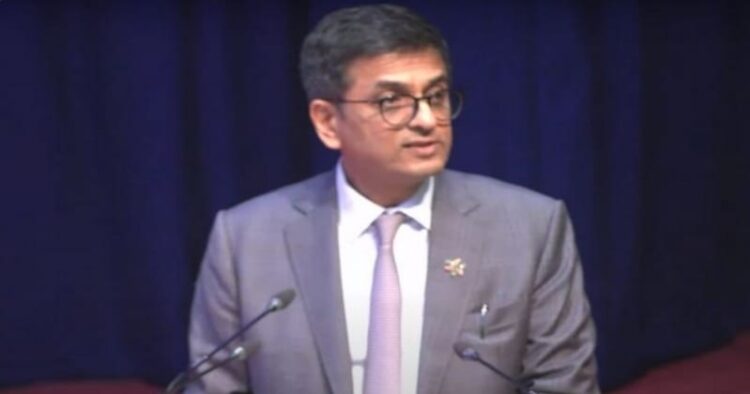Chief Justice of India DY Chandrachud said on November 27 that the Supreme Court is using technology to bring courtrooms closer to people, and online streaming of proceedings has taken the Court to the hearts and homes of people.
At the first regional conference on access to legal aid, CJI DY Chandrachud made these remarks. The conference is themed ‘Access to Legal Aid: Strengthening Access to Justice in the Global South’.
Nations that are regarded as having a relatively low level of economic and industrial development are referred to as the Global South.
Addressing the gathering, CJI DY Chandrachud mentioned that India has played a pivotal role in establishing the Supreme Court of Mauritius, and recently the country signed a MoU with the Supreme Court of Singapore.
CJI DY Chandrachud said that during his tenure as a judge of the SC, he has initiated several initiatives for access to justice, stating that the most potent weapon is technology.
“We are using it to bring the courtroom closer to people,” CJI said. “Online streaming of proceedings has taken the Supreme Court of India to the hearts and homes of common citizens,” the CJI DY Chandrachud said. He said that it is about making courtrooms a space where everyone feels welcome.
CJI DY Chandrachud said that the the discourse about human rights has been monopolised by the global north and it is imperative to amplify that this conference will serve to increase engagement between countries of the global south.
CJI DY Chandrachud said, “Since the early 1980s, the Supreme Court of India made revolutionary attempts to increase access to justice by way of its public interest jurisprudence. The Court removed procedural barriers to accessing the Supreme Court and allowed all citizens to approach the Court for the amelioration of socioeconomic in just. This jurisprudence resulted in the Supreme Court being widely regarded as the people’s Court. Our Supreme Court takes all appeals and violations of legal aid with utmost diligence.”
CJI DY Chandrachud said, “…Countries in the global south have been grouped together… based on their legal response to their colonial past and socioeconomic conditions. Our constitutions are a deviation from the language of constitutionalism and justice prevalent among Western nations… The constitutions of several nations in the global south are cognizant of the existence of indigenous minorities. Tribal groups who have been historically prejudiced and expressly recognised their rights through special provisions… The judiciary has the potential to play an extraordinary role in increasing access to justice… Countries including India have developed ingenious legal practices to increase access to justice…”
(with inputs from ANI)




















Comments